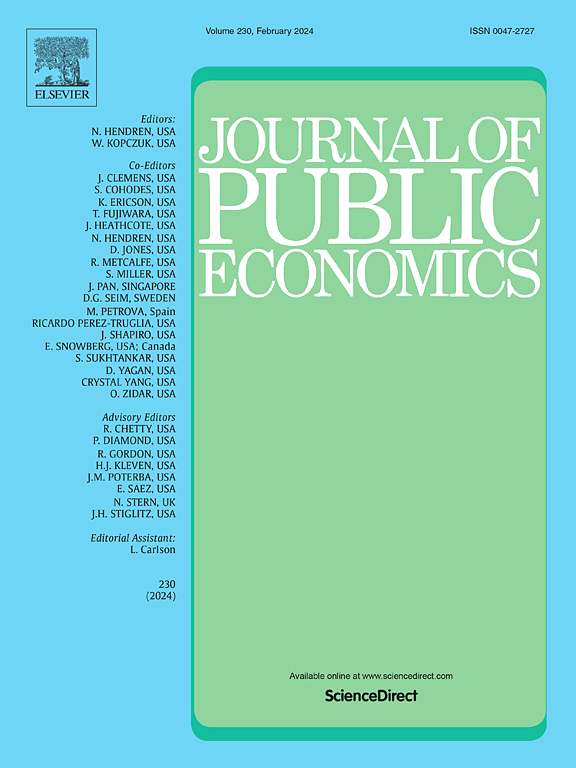The impossible trinity: Competitive markets, free entry, and efficiency
IF 4.8
1区 经济学
Q1 ECONOMICS
引用次数: 0
Abstract
We present a model in which workers make occupational choices and vote over a tax rate which determines the level of government spending. Workers in occupations whose services are in high (low) demand by the government favor high (low) taxes. We show that the socially efficient size of the public sector cannot be supported in a political economic equilibrium. The reason is that equilibrium tax rates always reward excessive entry into the politically most powerful sector, and thus the equilibrium size of government is always either too big or too small. We show that this is an example of a more general political economy result that extends well beyond the baseline model and holds quite generally: the combination of (i) competitive markets and (ii) free entry is inconsistent with (iii) allocative efficiency.
不可能的三位一体竞争性市场、自由进入和效率
我们提出了一个模型,在这个模型中,工人进行职业选择并对税率进行投票,税率决定了政府的支出水平。从事政府高(低)需求职业的工人倾向于高(低)税率。我们的研究表明,政治经济均衡无法支持公共部门的社会有效规模。原因在于,均衡税率总是奖励过度进入政治上最强大的部门,因此政府的均衡规模总是过大或过小。我们的研究表明,这是一个更普遍的政治经济学结果的例子,它远远超出了基线模型的范围,而且非常普遍:(i)竞争性市场和(ii)自由进入的结合与(iii)分配效率不一致。
本文章由计算机程序翻译,如有差异,请以英文原文为准。
求助全文
约1分钟内获得全文
求助全文
来源期刊

Journal of Public Economics
ECONOMICS-
CiteScore
14.10
自引率
2.00%
发文量
139
审稿时长
70 days
期刊介绍:
The Journal of Public Economics aims to promote original scientific research in the field of public economics, focusing on the utilization of contemporary economic theory and quantitative analysis methodologies. It serves as a platform for the international scholarly community to engage in discussions on public policy matters.
 求助内容:
求助内容: 应助结果提醒方式:
应助结果提醒方式:


